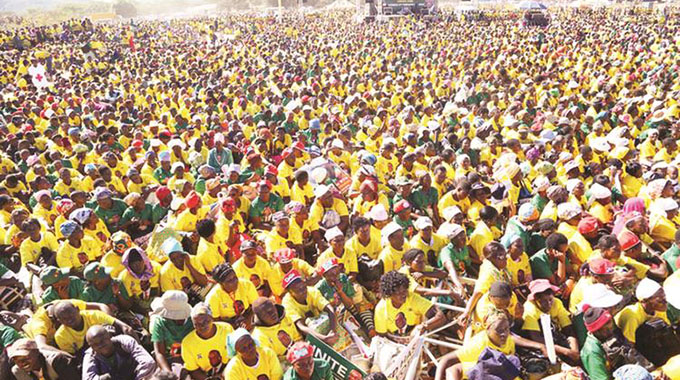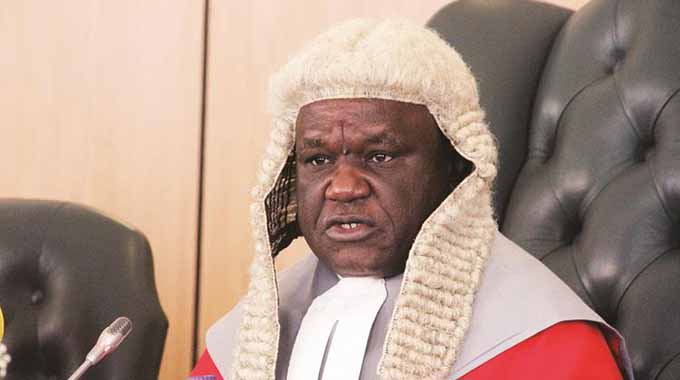Rethinking Zanu-PF’s urban resurgence

Gibson Nyikadzino Correspondent
When President Mnangagwa announced the dissolution of party structures in Harare and Bulawayo, naysayers did not envision that a methodology and philosophy of revolution is neither born nor accepted overnight.
To many, it was even difficult to understand how the decision had been arrived at a few months after the elections.
ZANU-PF has for a long time been unfortunate over failure to win a council seat in Bulawayo.
Recently, Zanu-PF candidate Cde Kidwell Mujuru won the Ward 28 council seat in Cowdray Park, Bulawayo.
The resounding victory by the party which is still rebuilding its urban structures, means ZANU-PF can do more.
The election of Cde Mujuru must not be separated from the 2023 election goal: to unite all people behind the national interest.
Unlike in the opposition where election candidates only enjoy participation without the intention to win, the Cowdray Park by-election victory to ZANU-PF was equally as important as a national election.
Vice President Kembo Mohadi and other senior party officials were on the ground, for the people and with the people, reorienting and aligning the thoughts of the electorate to the foundational ideology.
ZANU-PF has many nights to rethink how to win back the urban seats. It is all on the ideology.
As George Packer said: “Ideology knows the answer before the question has been asked.”
Lies have been peddled and propaganda has been manufactured that no people can vote for ZANU-PF, but now the rationale of such theories have wilted under the heat of fact. ZANU-PF is recalibrating its mass-mobilisation machine for 2023.
History does not pose problems without eventually producing solutions. Solutions to bring ZANU-PF closer to the urban population is through the organisation of the old days where no one spoke of belonging to who, but every effort done for the good of the party.
While the opposition has the majority of urban council seats, the Cowdray Park victory is now a pointer to break the yoke of electoral misfortunes on the part of the ruling party.
However, the electorate easily forgets that giving a chance to opposition politics, which is allowed in a functional democracy like ours, brought miseries which have affected the socio-political aspirations of the people since 2000.
Since 2000, the opposition Movement for Democratic Change had control of most urban seats, even today. To put that into perspective, there is nowhere the opposition has transformed the lives of the people.
The people have been given excuses by opposition politicians since 2000 yet service delivery and the public transport system has collapsed, while the housing backlog has increased as a result of corruption in the town houses.
For instance, today the country’s capital, Harare, looks cluttered. Opposition councilors and parliamentarians boast about of winning elections and once in office they set aside promises they made to the people.
The water situation in Harare also looks dire, pavements continue being dotted by vendors and recently the city fathers employed 600 municipal officers to ‘restore order’. It should be remembered that these new municipal officers are employed through recommendations of their ward councilors, in most cases along political lines not merit.
Under the watch of the opposition in urban councils since 2000, the nation has battled with cholera because water sources are not clean and water is seldom treated. Housing cooperatives continue popping with some allocated residential stands in wetlands.
Zimbabwe is a democracy.
It is the choice of the people to vote for leaders they want even if they are inept on policy initiatives and implementation. It remains unfortunate, however, because the decisions made by those in office affect the people who are looking up to them.
Today, the urban population has been let down by their councilors and parliamentarians. There is a misconception about what opposition politics should be about.
The concept of opposition politics has for a long time been misunderstood by its proponents in Zimbabwe. This explains why the results of opposition politics at national level have been unforgiving because in many cases, the opposition in Zimbabwe has challenged ZANU PF but have found themselves working hard for their defeat.
In Zimbabwe, what is known as opposition politics is opposing what the government says, outright, without providing alternative solutions so that the people can buy-in the idea of a “government in waiting”.
There is never a right moment for ZANU-PF to transform itself for the urban population than now. Those in the opposition have shown that they cannot solve the problems they pledged to solve because they seek to overcome a negative situation with negative means.
Violent and unsanctioned demonstrations have become the characteristic of opposition survival against a national consciousness. This is not what the electorate needs and ZANU-PF should make use of these opportunities for resurgence.
As the case of the Harare and Bulawayo structures are being looked into, when all is certain, the energy of the provincial executives should terrify the destructiveness of the opposition’s acts.
As we move towards the 2023 polls, people in urban areas should not look up to people whose agenda is self-aggrandisement but look towards policy oriented leaders who do not speak against national interest.









Comments